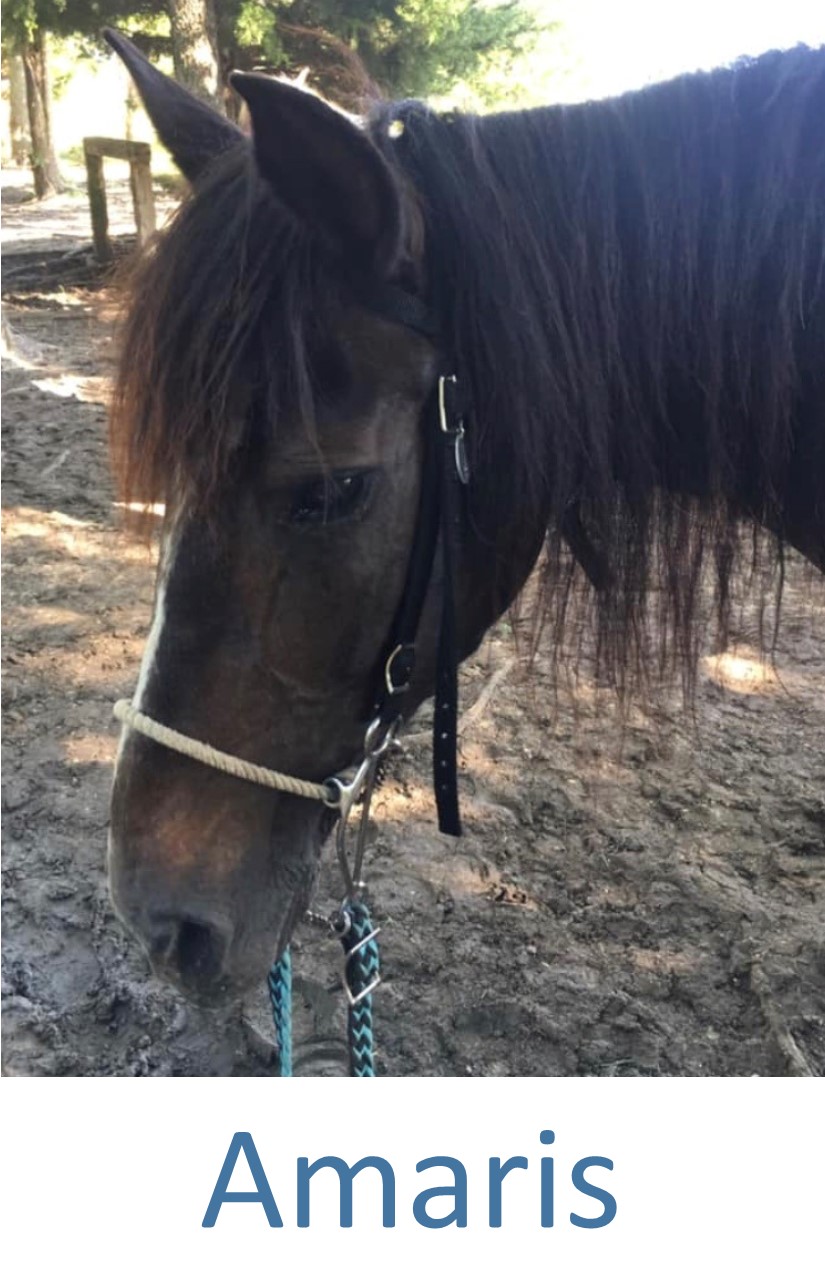We are going to be looking at several aspects of horse psychology. It is important to know what a horse might be thinking so you can determine what the best approach you should take when working with that horse. God ‘pre-programmed’ these instincts into each and every horse. The more we understand about horses the better we can communicate with them.
HERD INSTINCT
Horses usually group together in herds. God created horses to live in herds in the wild. This way they could be more protected from predators than a single horse on their own. Our tame horses still have this strong instinct to stay with their ‘buddies’. Here are several common examples of herd instinct in our horses. As you ride you will commonly find horses will want to follow the other horses instead of listening to the rider’s directions. This can be very frustrating. You need to remember this instinct to be herd-bound is very strong. The best way to deal with it is through understanding rather than being mean or forceful. Be patient but firm until the horse responds. Just giving up and giving in will never establish yourself as a leader. When you ride your horse in a group it is always wise to make sure you never get too close to a horse that isn’t friendly with your horse. There might end up being a kick-fight and you are caught in the middle! Know who are your horse’s herd-buddies and ride with them.
PECKING ORDER
Horses are quick to establish an order of dominance. There is no sure way to predict which horse will be dominate in the herd. Dominance has nothing to do with size! Ponies can sometimes be dominant over horses. Horses don’t always understand the concept of size. They are more perceptive to attitude and body language. This can be used to our advantage. If horses thought bigger s was always stronger we would NEVER be able to be an effective leader. Establishing a good pecking order makes the herd stronger, A strong leader is needed to keep the herd safe in the wild.
COMMUNICATION
Horses communicate through their body language. They use their ears, verbal sounds and swishes of their tails, shaking their heads etc. We must learn to read our horse’s body language. Some common body language we can readily read are listed below:
Common Horse Body Language:
1.Ears pricked forward: alert or curious, looking for danger
Ears turned back but relaxed: listening to rider or what’s behind him.
Ears pointed left and right: relaxed, paying moderate attention.
Ears flattened against neck: annoyed, worried, might bite or kick.
2. Nicker or whinny sound: glad to see you (or another horse), wants grain. Blowing air out their nose: contented or feeling good sound.
3. Swishing or wringing of their tail: annoyed at what they are being asked to do.
Horse Training and Learning
Horses learn by pressure and release. We reward our horse with soft words, petting, scratches or releasing the pressure on the bit or our legs. We use pressure to signal the horse then release the pressure the instant the horse responds. We can also reward with treats as long as we don’t allow the horse to get pushy about receiving them.
Four stages or phases should be used when we signal our horse to do something. Phase one is very light and gentle, phase two is a little stronger, phase three is stronger yet and phase four ‘gets the job done.’ Our goal is to teach the horse to respond at phase one.
Most horses will test the rider to see what they can get away with. Correct them right away so you don’t have to fight them the whole time you ride or work with them.
Spiritual Analogy
We often follow others because we want to fit into the crowd and feel like we belong. This can lead to problems if the people in the crowd we are with aren’t setting a good example. Jesus said. “Wide is the gate, and broad is the way that leads to destruction, and many there are that go through, but narrow is the gate. and straight is the way that leads to life. and few there be that find it.” Luke 7:13
Be careful who your friends are, and who you follow. God wants us to have people in our lives who will be good examples for us to follow and imitate. Do know it is God’s will for parents, teachers and government leaders to be over us, guide us and lead us?
Do you show respect for God by obeying those who God has set over you? God set our parents, teachers and others in authority over us. We are wise when we choose to listen and follow .
Bible Memory Verse:
All of us like sheep have gone astray, each to his own way. ls..53:6
To take the Quiz for this section click HERE
